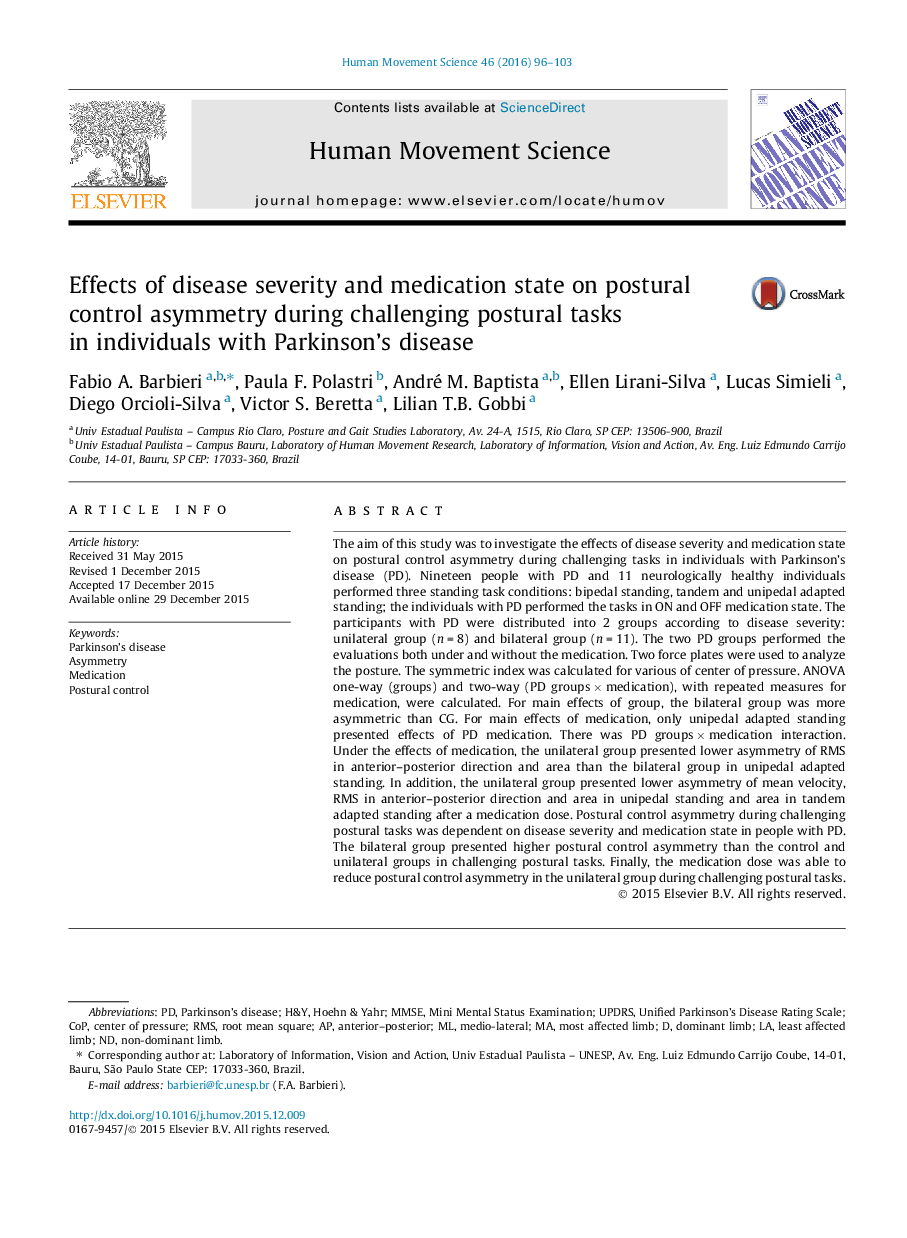| Article ID | Journal | Published Year | Pages | File Type |
|---|---|---|---|---|
| 928209 | Human Movement Science | 2016 | 8 Pages |
•Postural control asymmetry was dependent of disease severity and PD medication.•There were no effects of disease severity and medication for the bipedal standing.•Medication aided efficiency in challenging posture in people with unilateral symptom.•Medication was able to reduce postural control asymmetry in the unilateral group.•Bilateral symptom increased postural control asymmetry in challenging posture.
The aim of this study was to investigate the effects of disease severity and medication state on postural control asymmetry during challenging tasks in individuals with Parkinson’s disease (PD). Nineteen people with PD and 11 neurologically healthy individuals performed three standing task conditions: bipedal standing, tandem and unipedal adapted standing; the individuals with PD performed the tasks in ON and OFF medication state. The participants with PD were distributed into 2 groups according to disease severity: unilateral group (n = 8) and bilateral group (n = 11). The two PD groups performed the evaluations both under and without the medication. Two force plates were used to analyze the posture. The symmetric index was calculated for various of center of pressure. ANOVA one-way (groups) and two-way (PD groups × medication), with repeated measures for medication, were calculated. For main effects of group, the bilateral group was more asymmetric than CG. For main effects of medication, only unipedal adapted standing presented effects of PD medication. There was PD groups × medication interaction. Under the effects of medication, the unilateral group presented lower asymmetry of RMS in anterior–posterior direction and area than the bilateral group in unipedal adapted standing. In addition, the unilateral group presented lower asymmetry of mean velocity, RMS in anterior–posterior direction and area in unipedal standing and area in tandem adapted standing after a medication dose. Postural control asymmetry during challenging postural tasks was dependent on disease severity and medication state in people with PD. The bilateral group presented higher postural control asymmetry than the control and unilateral groups in challenging postural tasks. Finally, the medication dose was able to reduce postural control asymmetry in the unilateral group during challenging postural tasks.
